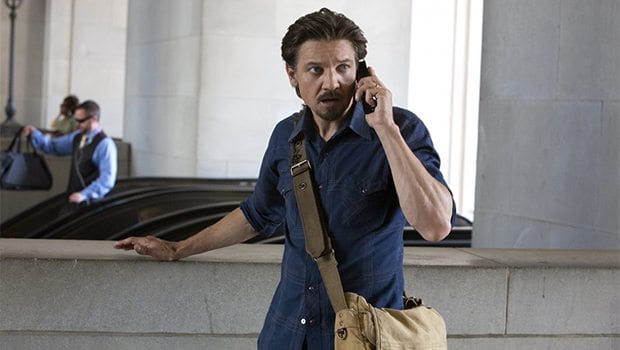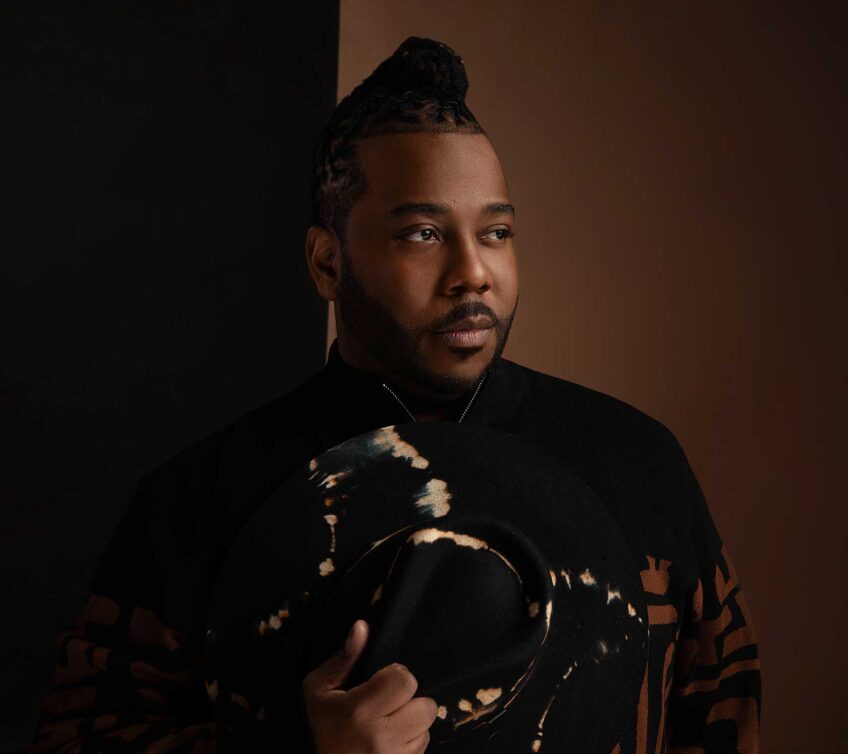
“I’m always attracted to things that don’t have easy answers,” says director Michael Cuesta of his latest film, Kill The Messenger.
Cuesta masterfully helmed the dramatic thriller, based on the remarkable true story of Pulitzer Prize-winning journalist Gary Webb (Jeremy Renner) of the San Jose Mercury News.
In 1996, Webb blew the lid off what appeared to be a U.S. government-sanctioned operation that allowed the CIA to smuggle cocaine into cities, like South Central L.A., in order to use the profits to arm the Contra militias in Nicaragua during the 1980s. Webb’s relentless investigative search for the truth and for justice led him down a path that not only threatened his career, but also his family and his life.
Renner leads an all-star cast which includes Rosemarie DeWitt as Webb’s wife, Sue; Paz Vega as Coral Baca, an upscale cocaine trafficker’s girlfriend who first tips off Webb about the operation with a grand jury transcript; Tim Blake Nelson as Alan Fenster, the defense lawyer for Los Angeles crack kingpin “Freeway” Ricky Ross (Michael Kenneth Williams); Andy Garcia as imprisoned drug baron Norwin Meneses; Mary Elizabeth Winstead as the Mercury News’ editor, Anna Simons; and Oliver Platt as the paper’s executive editor, Jerry Ceppos. Actors Michael Sheen and Ray Liotta also appeared in minor yet pivotal roles.
A graduate of New York City’s School of Visual Arts, Cuesta studied photography and literature, going on to hone a career as a still photographer and a director of commercials prior to directing feature films. The 2001 independent film L.I.E. marked his feature debut as a director, screenwriter, and producer, and the Boston Society of Film Critics honored him for his work with the Best New Filmmaker Award. The film went on to be nominated for six Independent Spirit Awards including Best Feature and Best Director.
After the success of L.I.E., Michael began working as a director of television dramas such as Six Feet Under, for which he directed five episodes from 2002 to 2005. Cuesta was hired to direct the pilot for Showtime’s Dexter in 2006, reuniting him with Six Feet Under’s Michael C. Hall. Cuesta directed four episodes of Dexter and was also an executive producer on the program’s first season.
In 2009, Cuesta returned to HBO to direct the second-season finale of True Blood, and in 2011 he directed the pilot for the Showtime series Homeland, which brought him an Emmy Award nomination. An executive producer for the first two seasons, Michael won both an Emmy and a Golden Globe Award for his role as one of the show’s executive producers.
In Boston last week, Michael Cuesta spoke with the Banner about Kill The Messenger, directing the all-star cast and working in film versus television.
Working with a cast like Jeremy Renner, Andy Garcia, Michael Sheen, does it make easier for you as a director?
Michael Cuesta: Anytime you have good guys it’s going to make you look better as a director. The most important thing is that they really understand the role. A filmmaker or director is as good as an actor. It’s that simple. If someone is not good, you can’t take blood from a stone. Jeremy and I worked together before, so I think there was a trust from his perspective. He knew that I would not overcharacterize anything, overdo anything. I tend to have a little more modest, delicate touch with films and not be so sort of bombastic with themes. I tend to lay things out in a more subtle way. So, Jeremy liked that.
Big stars like Andy Garcia, they do come in with ideas. Someone like Andy has made films. He’s written. Andy did send me a bunch of notes. Three-quarters were very good, one-quarter not. And, I’d tell him, and he was like, ‘cool,’ as long as he’s heard. But also he had some good ideas. If someone has a good idea you use it. I would say that Andy was the only one who came in with very specific [ideas], like dialogue things.
Why do you think people who were involved in this situation want to tell their story now?
MC: Because more is known now. I think at the time no one really knew. When Gary’s story broke, and because he was so discredited, I’m thinking that a lot of people were thinking ‘Maybe he is full of …it,’ ‘We don’t know the full story.’ Unfortunately, it took this long for more books to be written about it. You can go read Gary’s book. You can read the original articles. You can read all the discrediting articles. Then you read all the follow-ups and all the stuff that’s been done, the journalists that wrote about Gary. And they brought so many more things. I’ve learned more things since I’ve been on post-production on this film that are quite vindicating of him.
You’re very passionate about Gary Webb and what he did.
MC: Yeah, that’s why I made [the film]. His job was truth and justice. He had a very pure sense of that. Even Ricky talked about that when he met him. He goes, ‘I was leery of this guy when I met him. I saw the real guy didn’t give a sh… what color I was or if I was criminal or not a criminal or if I was a Republican or a Democrat. It was about the truth. I trust him now because he doesn’t have any agenda. His agenda is about being the truth guy.’
You’ve worked in television and in film. Which medium do you prefer?
MC: They always say that films are a director’s medium, TV is a writer’s medium and films are a producer’s business. I co-created some of my own TV things, so that’s what I prefer, to be a co-writer on television. But, when I’m brought in as a filmmaker to just do the pilot, I treat it like a film. I usually don’t plan on staying with it. Movies are really my medium, because I have more time. A movie can be honed. You can take your time with it and that’s key. Editing is always where I learn most about my movie and what the movie should be.
What’s the takeaway for you on directing movies and telling stories like this?
MC: That I keep learning about the subject. Because I think it would be disingenuous for anyone to say that they know the whole story of something this vast. I never know. I go into a world and I am curious. I guess I have a stubborn curiosity, where I just want to go into worlds that are very morally ambiguous. And, also as far as the truth and the complexities of a world like this, you can talk about it forever.
Kill The Messenger opens in theaters nationwide on Friday, October 10.


![Banner [Virtual] Art Gallery](https://baystatebanner.com/wp-content/uploads/2024/04/Cagen-Luse_Men-at-store-e1713991226112-150x150.jpg)

![Banner [Virtual] Art Gallery](https://baystatebanner.com/wp-content/uploads/2024/04/Cagen-Luse_Men-at-store-e1713991226112-848x569.jpg)

